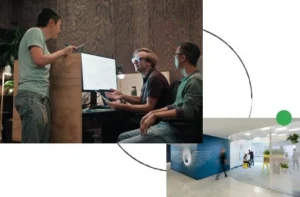NGENGE-POSTGRAD SOLUTIONS IS HERE TO HELP YOU: NPGS has an Application Help Service with a team of highly experienced professionals to help you find a position or prepare a CV or Cover Letter. Our professional experts can also apply for you from A to Z.
Application Deadline: July 15, 2022
The Economic and Social Research Institute (ESRI) wishes to make a 3-year appointment to their climate and energy modelling team. The research will entail close cooperation with the Sustainable Energy Authority of Ireland (SEAI), which is Ireland’s national energy authority investing in, and delivering, effective and sustainable solutions to help Ireland’s transition to a clean energy future. The post also entails an adjunct position at Trinity College Dublin
The Institute:
The ESRI, founded in 1960, is located in Dublin’s South Docklands area. Its mission is to produce high quality research, relevant to Ireland’s economic and social development, with the aim of contributing to knowledge and informing policymaking and public debate. It has over 110 staff including economists, sociologists and other social scientists, in addition to support and technical staff.
Climate & Energy Research at the ESRI:
The ESRI has an active climate and energy economics research group. Research projects include the Energy Policy Research Centre (EPRC), a multi-annual research programme funded by contributions from public and private sector stakeholders; and a climate research programme centred around the development and application of the Ireland Environment, Energy and Economy (I3E) model for policy evaluation. Academic collaborations are ongoing with researchers both in Ireland and overseas plus we also enjoy strong collaboration and engagement with industry stakeholders, the energy/climate ministry, and the energy regulator through biannual research steering meetings, as well as bilateral engagements through the year.
Role Description:
A key challenge for the design and implementation of public policy is understanding the linkages between macroeconomic drivers within the economy (e.g., growth, employment, taxation) and micro level responses to incentives (e.g., household decisions on transportation, energy efficiency, etc.). Successfully reaching several high-level government policy targets, such as those related to CO2 emissions and energy efficiency, depend on millions of individuals, households, and businesses undertaking a broad range of specific actions. The successful candidate’s research will explore these linkages, collaborating with colleagues working on the ESRI’s macroeconomic models, e.g. I3E and COSMO, and colleagues within the SEAI, which maintain a suite of energy models known as the National Energy Modelling Framework (NEMF). Among the specific projects is researching residential heating, understanding linkages between the macro drivers of the I3E model to SEAI’s residential heat demand modelling. Another aspect is examining the impacts on wider economic development and the distributional aspects of policy instruments intended to incentivise a low carbon transition.
The candidate’s research will have at least two anticipated outlets. First, research papers are expected to be published in leading international, peer-reviewed journals and presented at conferences. Second, research and policy recommendations will assist the SEAI in its roles advising Government, homeowners, businesses, and communities on the transition to a low-carbon future. The research team will regularly engage through bilateral meetings with the SEAI and the Department of the Environment, Climate and Communications.
Skills, Qualifications and Experience:
The successful candidate will have a PhD (completed or nearing completion) in economics or a closely related discipline, and ideally will have their work published in leading international, peer-reviewed journals. The appointee will be expected to take a lead in defining and developing the methods applied in the project and ideally should have experience in developing models independently.
Candidates with the following skills are encouraged to apply:
- Advanced OR modelling skills and strong computer skills;
- Flexibility and coordination skills;
- Ability to work collaboratively with engineering colleagues in TCD and also in industry;
- Analytical and quantitative modelling skills (e.g., applied modelling, econometrics, etc.);
- Research interest and knowledge in climate or energy economics;
- Excellent writing, interpersonal and communication skills with the ability to write policy reports and peer reviewed journal papers;
- Ability to present and communicate research findings to non-technical and technical audiences;
- Careful attention to detail while maintaining the drive to meet tight deadlines;
- Demonstrated ability to work successfully in teams and on their own initiative;
- Interest in policy related research, particularly in the area of climate and energy economics.
The successful candidate should have experience in independently developing their research work and have the flexibility and capacity to contribute to other areas of ESRI research. Experience of engaging with research/policy stakeholders is desirable.







